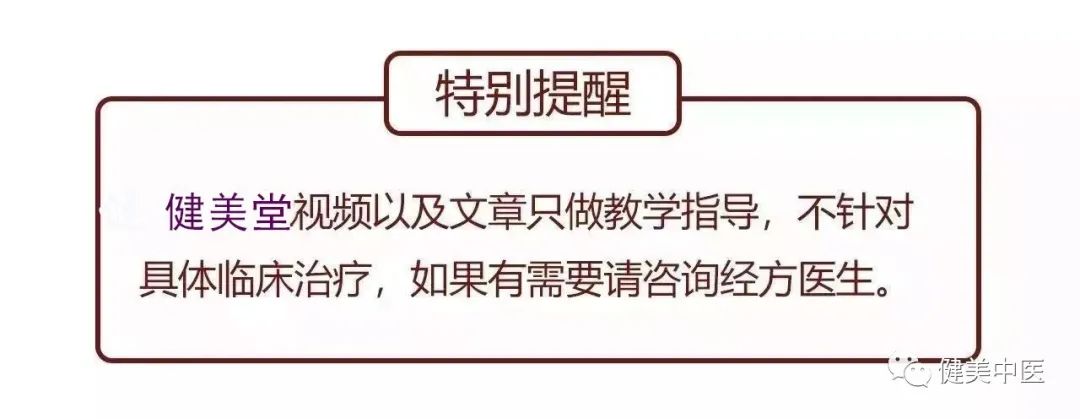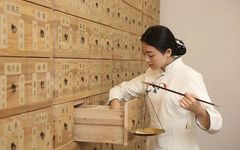The best doctor is ourselves, for no one knows our body better than we do~
Traditional Chinese Medicine (TCM) is a treasure of China. Experienced TCM practitioners can use it to combat various ailments, and we can also apply it in dietary therapy to nourish our bodies~
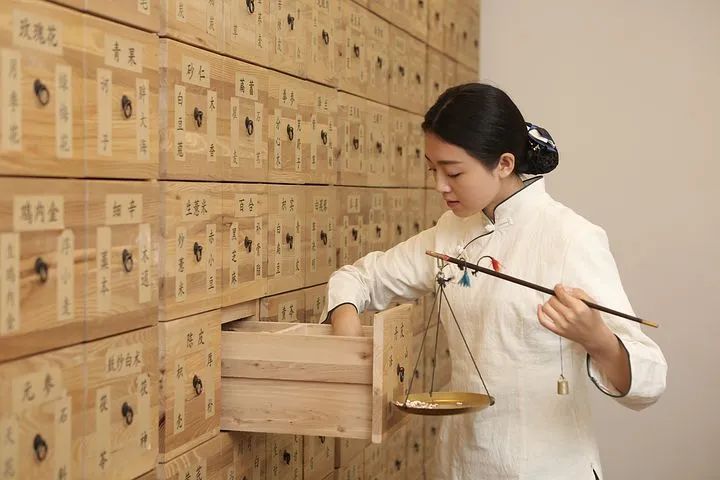
Ten Essential Chinese Herbs for Every Family
Ling Zhi (Reishi Mushroom): Tonifies the body and expels evil, the herb of immortals.
Ren Shen (Ginseng): A little every day promotes health and longevity.
Shan Zha (Hawthorn): Excellent for digestion and resolving blood stasis.
Huang Qi (Astragalus): The premier herb for tonifying Qi.
Sheng Jiang (Fresh Ginger): Protects against evils, supports Yang Qi, and disperses cold and dampness.
Bai Mao Gen (White Grass Root): Cools the blood and stops bleeding, a great herbal remedy.
Ju Hua (Chrysanthemum): The best liver-protecting tea for modern people.
Yi Yi Ren (Job’s Tears): Not a pearl but better than a pearl.
Gan Cao (Licorice): Nourishes the body and enhances beauty, a common tonic for the people.
Hua Jiao (Sichuan Pepper): The spicy doctor, characteristically dispels cold.
Top Properties of Chinese Medicinal Herbs
Best for clearing heat and detoxifying—Jin Yin Hua (Honeysuckle);
Best for aromatic dampness transformation—Huo Xiang (Agastache);
Best for promoting urination and draining dampness—Fu Ling (Poria);
Best for aromatic opening of orifices—She Xiang (Musk);
Best for clearing heat—Shi Gao (Gypsum);
Best for purging fire—Huang Lian (Coptis);
Best for descending Qi—Chen Xiang (Agarwood);
Best for generating fluids—Shi Hu (Dendrobium);
Best for resolving phlegm—Ban Xia (Pinellia);
Best for calming the liver—Ling Yang Jiao (Antelope Horn);
Best for cooling and pungent—Bo He (Peppermint);
Best for relieving pain—Yuan Hu (Cyathula);
Best for stopping bleeding—San Qi (Notoginseng);
Best for tonifying Yang—Lu Rong (Deer Antler Velvet);
Best for tonifying Yin—Nu Zhen Zi (Ligustrum);
Best for purging—Da Huang (Rhubarb);
Best for cooling blood—Xi Jiao (Rhinoceros Horn);
Best for regulating Qi—Zhi Shi (Bitter Orange);
Best for soothing the liver—Yu Jin (Curcuma);
Best for invigorating blood—Dan Shen (Salvia);
Best for tonifying Qi—Ren Shen (Ginseng);
Best for tonifying blood—Dang Gui (Angelica);
Best for tonifying the spleen—Shan Yao (Chinese Yam);
Best for digestion—Shen Qu (Malt);
Best for clearing phlegm—Bei Mu (Fritillaria);
Best for reducing jaundice—Yin Chen (Virgate Wormwood);
Best for dispelling wind—Du Huo (Angelica Pubescens);
Best for calming the spirit—Zao Ren (Jujube Seed);
Best for warming the interior—Fu Zi (Aconite).
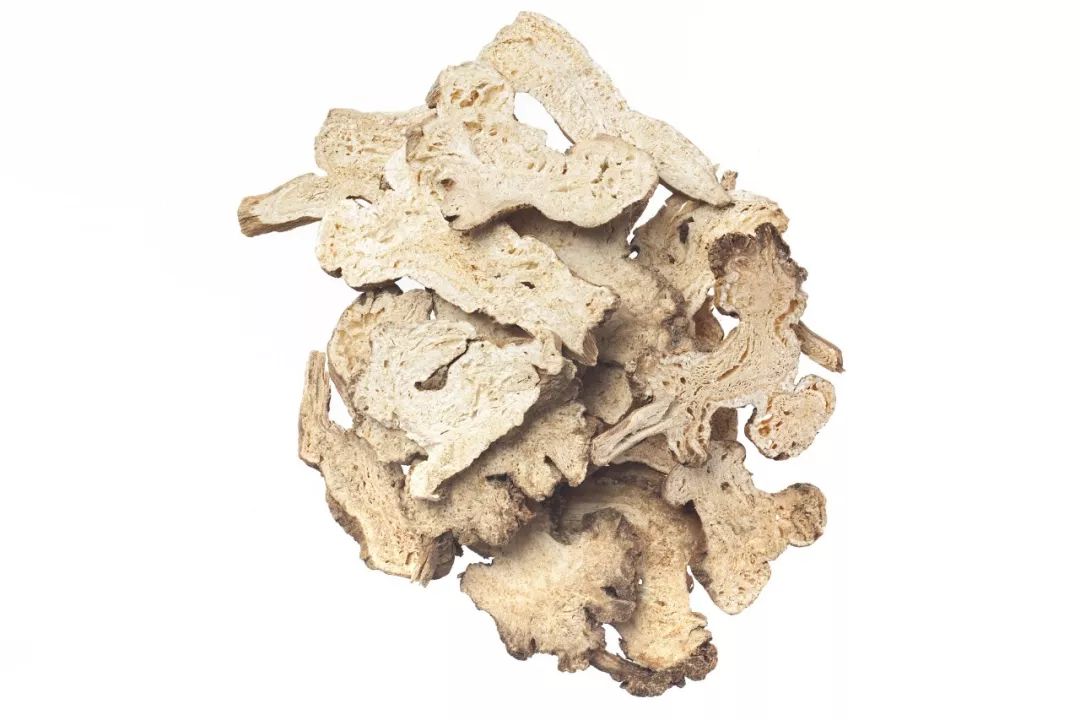
Good Herbs Make Women Beautiful for a Lifetime
Dang Gui (Angelica): A sacred herb for nourishing blood, ensuring women’s lifelong safety.
Hong Hua (Safflower): A flower that invigorates blood and enhances beauty.
Yi Mu Cao (Motherwort): The beauty expert of Empress Wu Zetian.
Xue Lian Hua (Snow Lotus): A flower blossoming from the ice mountain, nurturing youthful beauty.
Ai Cao (Mugwort): A natural health “skin soother”.
Lu Hui (Aloe Vera): Cleopatra relied on it to conquer the world.
Bai Ji (Bletilla): The whitening fairy among herbs.
Ge Gen (Kudzu Root): The “woman’s ginseng” for relieving heat and generating fluids.
Bai Shao (White Peony): A confidante for nourishing Yin and blood in women.
Xing Ren (Apricot Kernel): Nourishes the skin, keeping it youthful and fair.
Yu Zan Hua (Hosta Flower): Nourishes blood and removes spots, beautiful and flawless like a flower.
Protecting Our Innate Foundation
He Shou Wu (Fo-Ti): Warms and tonifies kidney Yang, allowing one to live for 500 years with flowing black hair.
Gou Qi Zi (Goji Berries): The ancient elixir for seasonal health and longevity.
Dong Chong Xia Cao (Cordyceps): A dual tonic for Yin and Yang, unique in the world.
San Qi (Notoginseng): The “gold that cannot be exchanged” for reviving the dead.
Qian Shi (Euryale Seed): A water fairy loyal to the spleen and kidneys.
Nu Zhen Zi (Ligustrum): Tonifies the liver and kidneys, achieving perfect harmony.
Du Zhong (Eucommia Bark): The top herb for regulating blood pressure in both directions.
Tu Si Zi (Cuscuta): Gently nourishes, starting from the mother’s womb.
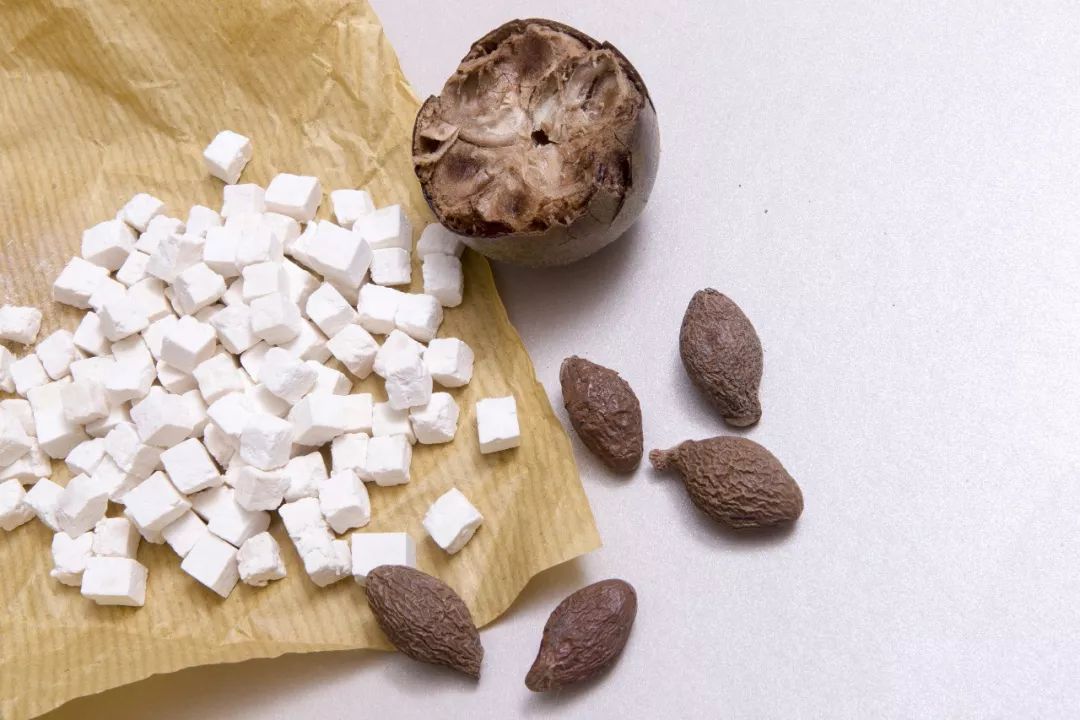
The Source of Health from the Acquired Foundation
Bai Fu Ling (White Poria): Strengthens the spleen and tonifies the center, allowing even Empress Dowager Cixi to “return to youth”.
Shan Yao (Chinese Yam): A divine food that nourishes our acquired foundation.
Fan Mu Guo (Papaya): The “longevity fruit” that ensures your gastrointestinal peace.
Chen Pi (Dried Tangerine Peel): The most common herb for strengthening the spleen.
Huo Xiang (Agastache): Supports the spleen and stomach’s righteous Qi, allowing you to eat as you please.
Ding Xiang (Clove): A fragrant remedy for warming the stomach.
Common Ailments Without Seeking Help
Ban Lan Gen (Isatis Root): A classic remedy for colds.
Jie Geng (Platycodon): The cough remedy that makes the great chef smile.
Lo Han Guo (Monk Fruit): A sweet fruit that can lower blood sugar.
Tao Ren (Peach Kernel): Best at invigorating blood, removing stasis, and promoting bowel movements.
Zi Su (Perilla): Dispels cold and warms the stomach, essential when eating seafood.
Nangua Zi (Pumpkin Seeds): Eating a handful daily alleviates prostate concerns.
Bin Lang (Betel Nut): A top herb for digestion and resolving accumulation.
Zhu Yu (Cornelian Cherry): The best choice for external use to lower blood pressure.
Dong Sang Ye (Mulberry Leaf): A wonderful remedy for stopping night sweats and spontaneous sweating.
Kuan Dong Hua (Coltsfoot): The first choice for patients with chronic cough and lung cold.
Luo Di Sheng Gen (Fallen Root): A sacred herb for treating injuries in the Dai community.
Shi Chang Pu (Acorus): Enters the heart channel, a blessing for patients with coronary heart disease.
Da Ji (Cirsium): A good remedy for stopping bleeding, whether used externally or internally.
Juan Bai (Selaginella): A herb for reducing inflammation and stopping bleeding.
Xian He Cao (Agrimony): Quickly restores physical strength.
Puhuang (Cat Tail Pollen):
A flower pollen that can lower blood lipids.
Brain-Boosting and Calming Methods
Tian Ma (Gastrodia): The guardian that keeps smart people from being confused for a lifetime.
Suan Zao Ren (Sour Jujube Seed): Banishes insomnia, bringing sweet dreams for a lifetime.
Hong Zao (Red Dates): Nourishes blood and calms the spirit, can be eaten as a snack daily.
Huang Hua Cai (Day Lily): Boosts brain function and clears the heart, allowing one to forget worries.
Gui Yuan (Longan): Nourishes blood, calms the spirit, and strengthens the body, with countless benefits.
Lian Hua (Lotus): Clears the heart and nourishes the spirit, solidifying essence and strengthening bones.
Yuan Zhi (Polygala): An effective remedy for treating palpitations, forgetfulness, and insomnia with many dreams.
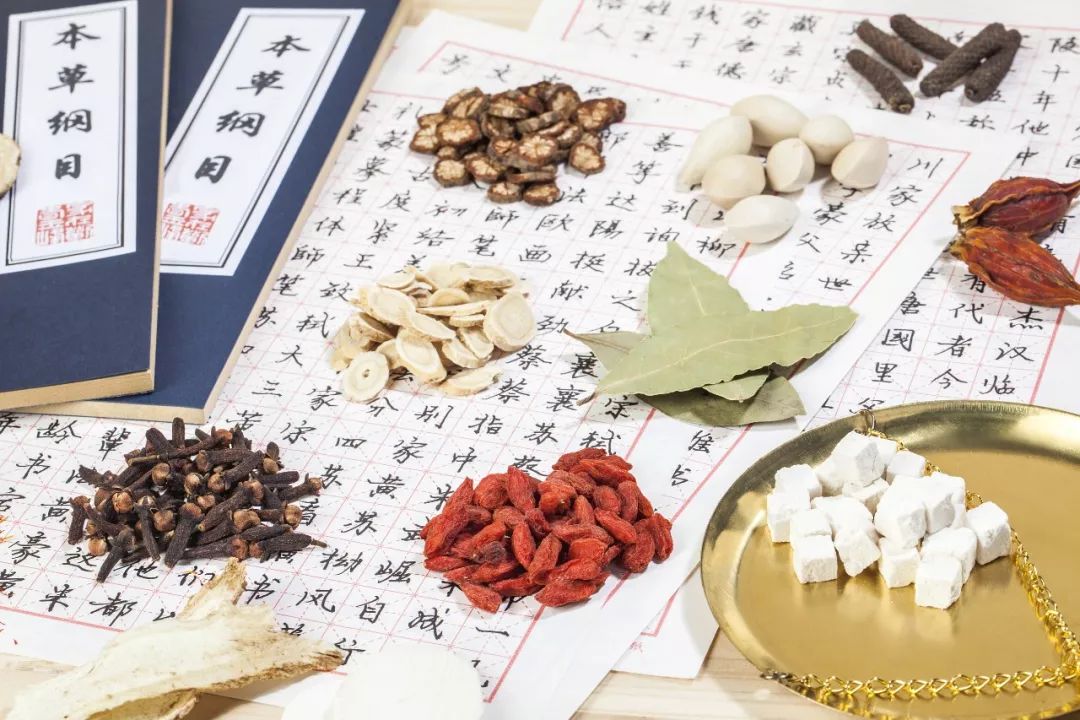
Easy Herbal Detox
Jin Yin Hua (Honeysuckle): With it, even the hottest summer feels cool.
Pu Gong Ying (Dandelion): Use it for any unknown swelling or toxins on the body.
Yu Xing Cao (Houttuynia): Anti-inflammatory and detoxifying, a small herb with great effects.
Jue Ming Zi (Cassia Seed): The earliest used ophthalmic herb in history.
Pi Pa Ye (Loquat Leaf): A common remedy for clearing lung heat.
Zhi Zi (Gardenia): Excellent for resolving heat toxins throughout the body.
Xia Ku Cao (Selfheal): The top herb for clearing heat and purging fire, treating lymphatic tuberculosis.
Zi Hua Di Ding (Viola): A key herb for detoxifying and resolving abscesses.
Mu Dan (Peony): A wonderful cooling blood herb, a divine medicine among flowers.
Feng Xian Hua (Impatiens): An external remedy for clearing heat and detoxifying, known as the “daughter flower”.
Huang Lian (Coptis): Clears damp-heat from the five organs, the world’s most bitter herb.
Delicious Vegetarian Dishes on the Table
Yin Er (Tremella): The best food for nourishing the lungs and moistening Yin.
Bai He (Lily Bulb): Nourishes the five organs, delicious in any preparation.
Bai Cai (Shepherd’s Purse): A premium vegetable for patients with “three highs”.
Bo He (Mint): An aromatic therapy for soothing the throat.
Hui Xiang (Fennel): A remedy for alleviating chronic gastritis.
Bai Guo (Ginkgo): Unquestionably effective for treating cough and asthma.
Che Qian Cao (Plantago): The best dietary therapy for patients with prostatitis.
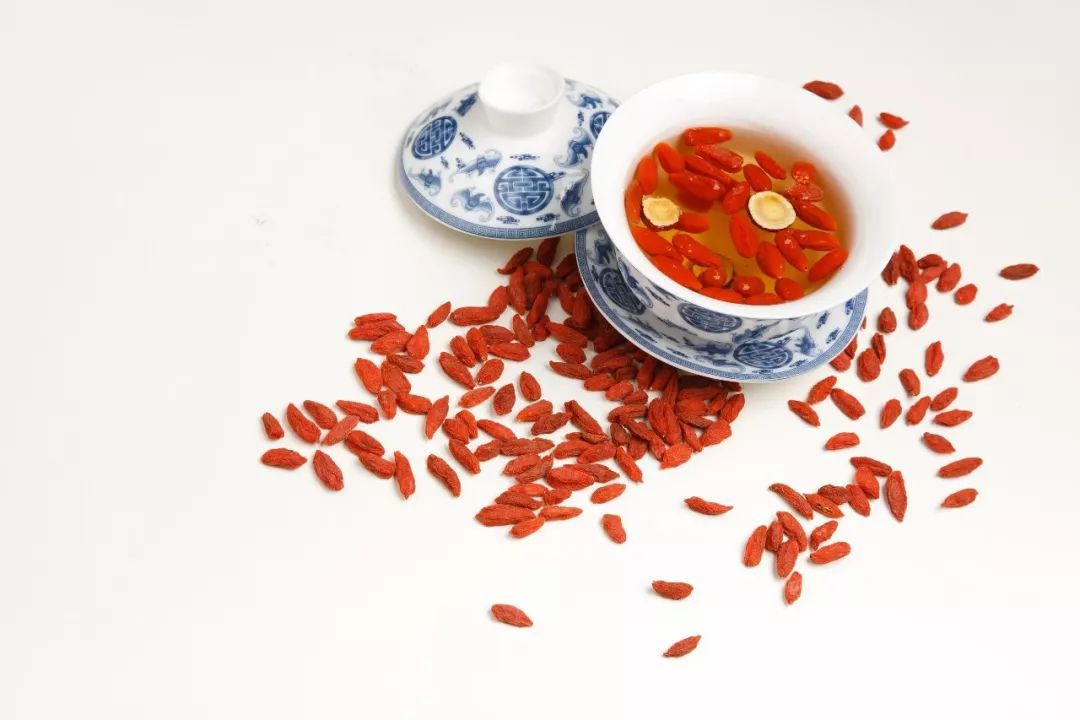
Digestive Herbs
Digestive herbs include Shan Zha (Hawthorn), Qu (Malt), and Mai (Barley), which help with food accumulation.
Shan Zha aids in digesting meat accumulation and treats chest and abdominal pain caused by stasis.
Mai helps digest rice accumulation, relieves breast engorgement, and alleviates liver Qi stagnation.
Laifu helps with food accumulation and regulates Qi, suitable for fullness and phlegm.
Neijin helps dissolve accumulation and treat various food stagnation and incontinence.
Calming Herbs
Heavy calming herbs include Zhu Sha (Cinnabar), Ci (Magnetite), Amber, Long Gu (Dragon Bone), and Long Chi (Dragon Tooth).
Yang Xin An Shen (Nourishing Heart and Calming Spirit) herbs include Bai Zao Ren (Jujube Seed), Yuan Zhi (Polygala), and He Huan (Mimosa).
Zhu Sha detoxifies and calms the heart, treating palpitations and insomnia.
Ci calms the heart and liver, sharpens hearing and vision, and alleviates asthma.
Long Gu calms fright and soothes the spirit, solidifying and balancing the liver to treat dizziness.
Suan Zao Ren nourishes the heart and benefits the liver, treating blood deficiency, insomnia, and excessive sweating.
Yuan Zhi opens the heart orifices, expels phlegm, and treats forgetfulness, epilepsy, and cough.
Detoxifying, Insecticidal, Moisturizing, and Itching-Relieving Herbs
Bai Fan (Alum), She Chuang Zi (Cnidium), and Liu Huang (Sulfur) are effective for detoxifying and killing intestinal worms.
Xiong Huang detoxifies and kills intestinal worms, treating eczema, snake bites, and swellings.
Sulfur relieves itching and treats scabies, while internal use strengthens Yang and promotes bowel movements.
Phlegm-Resolving, Cough-Relieving, and Asthma-Relieving Herbs
Phlegm-resolving herbs include Ban Xia (Pinellia), Xing Ren (Apricot Kernel), and Bai Fu (White Peony).
Ban Xia resolves phlegm and treats nausea and dizziness.
Jie Geng (Platycodon) helps resolve phlegm and promotes lung function.
Chuan Bei (Fritillaria) resolves phlegm and moistens the lungs, treating heat phlegm and cough.
Lu Gen (Reed Rhizome) clears heat and resolves phlegm, promoting lung health.
Huang Qi (Astragalus) supports the immune system and helps with phlegm and cough.
Jie Geng (Platycodon) resolves phlegm and promotes lung function.
Chuan Bei (Fritillaria) resolves phlegm and moistens the lungs, treating heat phlegm and cough.
Lu Gen (Reed Rhizome) clears heat and resolves phlegm, promoting lung health.
Huang Qi (Astragalus) supports the immune system and helps with phlegm and cough.
This comprehensive list of Chinese herbs is hard to find, so be sure to save it! Share it with friends so more people can benefit!


If you find this helpful, please share it!
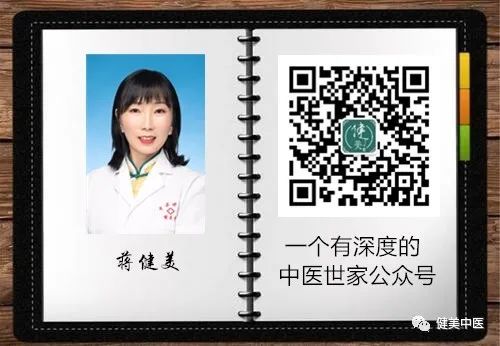
National EssenceThe rotation of heaven and earth is like a perfect poem; the wisdom left by our ancestors teaches us to act according to the times and live grounded.
Time is beautiful; let’s walk hand in hand with health!
Heir of a TCM family; Jiang Jianmei
Apprenticeship hotline; 13587073277 Consultation hotline: 18205800308 Beauty salon and TCM hospital cooperation hotline: 18205802226 Interpretation; “Huang Di Nei Jing” (Yellow Emperor’s Inner Canon), “Shen Nong Ben Cao Jing” (Shen Nong’s Herbal Classic), “Jin Gui Yao Lue” (Essentials from the Golden Cabinet), “Wen Bing Tiao Bian” (Differentiation of Warm Diseases), “Shang Han Lun” (Treatise on Cold Damage), “Zhen Jiu Jia Yi Jing” (The Classic of Acupuncture and Moxibustion), “Xiao Er Tui Na Pian” (Pediatric Tuina), “Jing Luo Xue Wei Pian” (Meridian and Acupuncture Points); Analysis of common diseases; Research on difficult and complicated diseases.
Recommended Reading:
1. The liver is mute but controls the spots on your face.
2.Why take a sublingual plug? And the main effects of sublingual plugs.
3.People do not die from diseases, but from ignorance!
4.Zhong Nanshan: Heart stents! Let life enter the countdown!
5.Since ancient times, doctors do not knock on doors; it’s not about putting on airs!
Sharing is taking responsibility for the health of your friends.
Introduction to TCM, correct health preservation, and achieving health!
